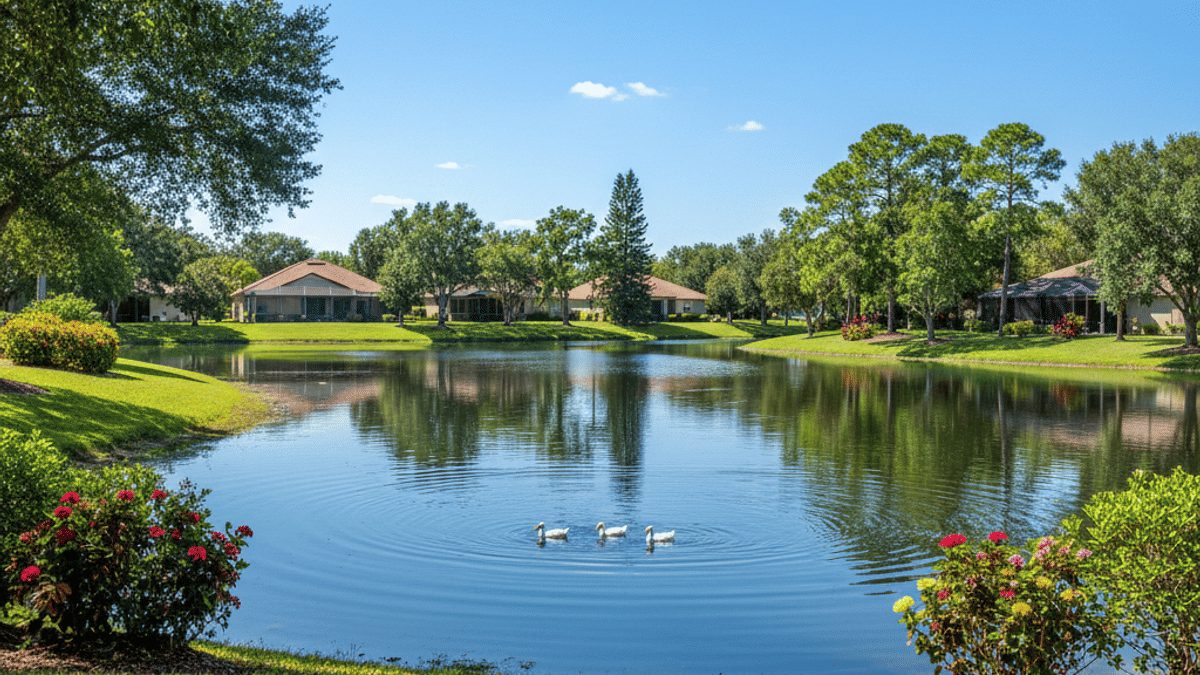Making Sense of Timing: How Long Homeowners in Winter Garden Typically Stay Before Selling
Every market has its own tempo. In parts of the country people camp out in the same home for two decades. In other metros owners flip after only three years. Winter Garden sits somewhere in between.
Recent county data pins the average stay in Winter Garden at a little under nine years. Compare that with the statewide figure of 8.5 years and the current national average of right around 13 years. Translation: people here move a bit sooner than the national crowd, but they are not churning through properties like serial flippers either.
Two reasons push that number. First, Winter Garden’s population has doubled since the early 2000s, which brings job changes and new construction—both fuel a “next-house” mentality. Second, property values climbed more than 90 percent over the past decade. Big equity gains tempt owners to list earlier than they expected.
Mortgage rates matter, too. Owners who locked in during the sub-three-percent era tend to stay put, but anyone who bought in a five-plus percent window often eyes a refinance or sale the minute rates slide. In other words, the economic rhythm of Winter Garden, plus interest-rate swings, explains why nine years is the sweet spot right now.
Standard Homeownership Duration Before Selling
Let’s separate the myth from the math. You will hear that you “must” own for five years or you lose money. Not quite. The numbers tell a more flexible story:
- Starter homes
Median hold: five to seven years. Many first-time owners in Winter Garden build equity quickly, upsize, and hand off that entry-level house to the next buyer wave. - Move-up or “second step” homes
Median hold: eight to ten years. These properties are larger, often on bigger lots, and owners tend to settle until career or lifestyle shifts resurface. - Forever-ish homes
Median hold: twelve years and up. Equity growth plus deep community ties keep folks rooted, yet the numbers still show a respectable percentage cashing out once a remodel starts looking pricey.
Local agents agree that year five marks the first “green-zone” for a profitable sale. By year seven, the odds of walking away with a solid check jump steeply. By year ten, you usually have the luxury of timing the market rather than reacting to it.
Factors Influencing When to Sell Your Home
Timing is rarely just about statistics. You bring your own story to the table. Let’s lay out the main drivers and a few quick insights on each.
- Market swings
New corporate campuses along the State Road 429 corridor continue to add higher-paying jobs. When hiring heats up, inventory shrinks and prices climb. - Life changes
Marriage, a new baby, an empty guest room once the teenager goes to college—any of these can flip the “should we move” switch. - Loan milestones
Hitting the 20 percent equity mark wipes out private mortgage insurance. Payments drop. Suddenly you have extra cash for repairs, making it painless to wait for a hotter selling season. - Property taxes and insurance
Costs tick upward each year. If they start biting into your monthly comfort zone, listing sooner may feel smarter than hanging on. - Seasonal flow
In Winter Garden, March through May sees the highest foot traffic from buyers. November through January slows, though low inventory during the holidays sometimes sparks bidding wars.
Stack a few of those factors together and your personal clock may speed up or down.
Maximizing Profitability When Selling
Ownership length is only half the recipe. What you do while you own makes a huge difference.
- Smart refreshes, not gut jobs
A $3,000 exterior paint job can boost perceived value more than a $25,000 chef’s kitchen nobody asked for. I have tested both, and the paint won every time. - Equity snowball
Toss in one extra mortgage payment each year. It feels small, yet it shaves roughly four years off a standard 30-year loan and adds tens of thousands to your pocket at closing. - Peak-season launch
Aim for the first two weeks of spring. Listings tend to receive 16 percent more online views and 8 percent more walk-throughs compared with midsummer numbers. - Capital gains math
Stay in the property at least two out of the previous five years to shield up to $250,000 in gains from federal taxes if you file solo, $500,000 if you file jointly. Miss that window and you hand over part of your hard-earned equity to the IRS. Yet another reason the five-year mark is a line in the sand for many owners. - Lean on local intel
A seasoned agent tracks micro-neighborhood shifts no website can capture. I spent an extra month prepping a listing last year because my data showed a cluster of three-bed cottages hitting the market the very next week. We closed eleven percent above list price by waiting out the initial rush.
Patience mixed with strategic tweaks almost always beats the “throw up a sign and hope” approach.
Ready To Make A Change?
So, how long should you own a home before selling in Winter Garden? The statistics whisper nine years, the tax code nods at two, and your own life story adds the final layer. Here is a quick gut-check list:
- You have passed the two-year ownership threshold and stand to pocket gains tax-free.
- Your equity tops 20 percent, wiping out extra loan costs.
- The local market index shows rising prices and lean inventory.
- Upcoming personal milestones hint that a move now saves hassle later.
Hit three out of four and the universe is basically handing you a sold sign. Miss most of them and you might hold tight for another season or two.
Remember, Winter Garden has a habit of rewarding patience. Homes here appreciate at a healthy clip, yet the market rarely sees the whiplash drops of bigger coastal cities. You can afford to think things through.
If you feel that itch to list, start a low-pressure conversation with a real estate pro who actually lives the numbers daily. No pushy commitments, just data and options. Give yourself room to breathe, crunch the figures, and move forward only when your wallet and your gut both signal, “Let’s go.”





